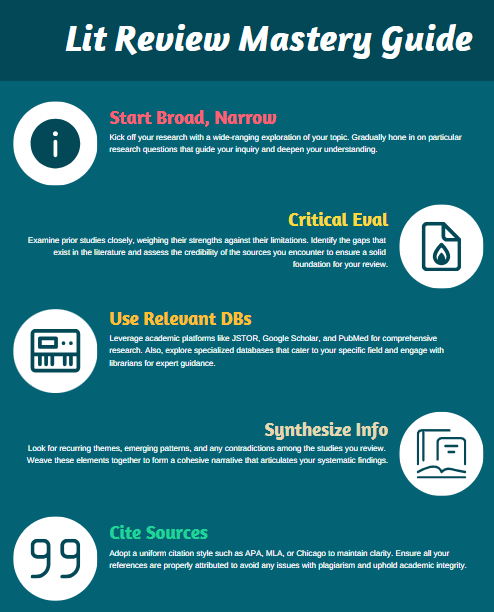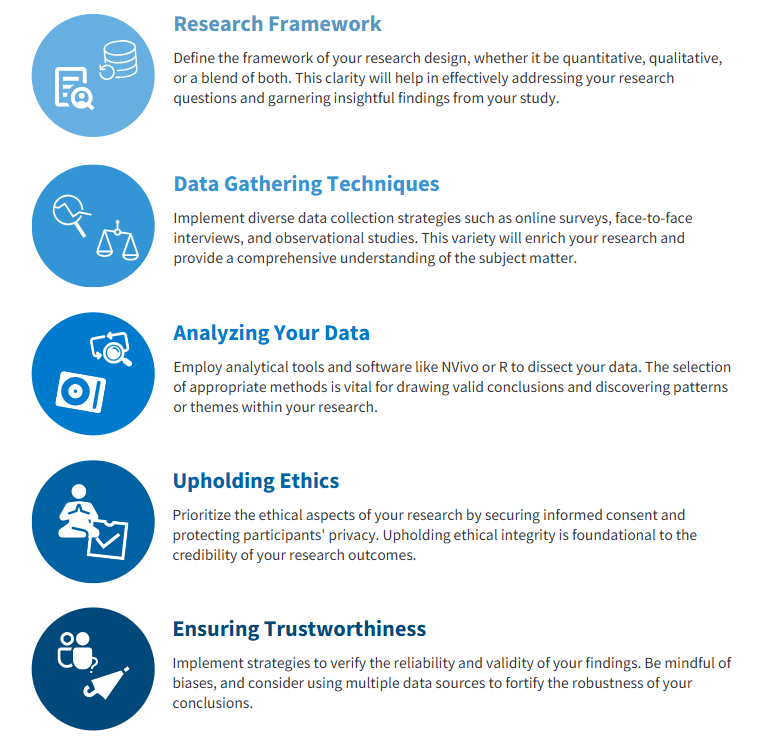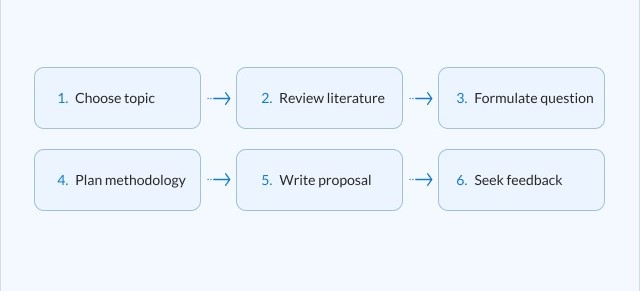The thesis proposal is your first major step towards completing your academic journey. It's not just a formality; it's a roadmap, a blueprint, and a powerful statement of your intellectual intent. A well-written thesis proposal can open doors to funding, research opportunities, and even influence the direction of your entire academic career. However, crafting a convincing thesis proposal requires careful planning, meticulous research, and a clear understanding of the expectations.
This comprehensive guide will walk you through the process, providing insights and tips to help you create a proposal that will impress your committee and set you on the path to success.
Steps to Writing a Convincing Thesis Proposal
1. Choosing a Compelling Thesis Topic
The foundation of a strong thesis proposal lies in selecting a relevant and engaging research topic. This decision will shape your entire research journey, so it's crucial to choose wisely.
- Relevance and Impact: Consider the current state of knowledge in your field. Is there a gap in the research that your thesis could fill? Does your topic address a pressing issue with real-world implications?
- Feasibility and Scope: Evaluate the feasibility of your research. Are the resources available to you? Can you realistically complete the research within the allotted time frame?
- Personal Interest: Your thesis should be something you genuinely care about. Passion will drive your research and help you overcome inevitable challenges.
2. Conducting Thorough Literature Review
A comprehensive literature review forms the cornerstone of your thesis proposal. It demonstrates your understanding of the existing research, identifies potential gaps in knowledge, and positions your research within a broader academic context.
- Start Broad, Narrow Down: Begin by exploring general literature in your field and gradually refine your focus to specific subfields and research areas.
- Critical Evaluation: Don't just summarize existing research. Analyze the strengths and weaknesses of previous studies, identify inconsistencies, and highlight opportunities for further investigation.
- Use Relevant Databases and Resources: Utilize academic databases such as JSTOR, Google Scholar, and subject-specific resources to locate relevant research articles, books, and other publications.

3. Formulating a Clear Research Question
A well-defined research question is the heart of your thesis proposal. It provides a clear direction for your research and guides your exploration of the topic.
- Specific and Focused: Avoid overly broad research questions that can lead to unfocused research.
- Measurable and Testable: Your research question should be formulated in a way that allows you to collect and analyze data to arrive at a meaningful conclusion.
- Relevant to the Literature: Your research question should be grounded in the literature review and address a gap in current knowledge.
4. Developing a Robust Methodology
The methodology section of your thesis proposal explains the steps you will take to answer your research question. It outlines the methods you will use to collect and analyze data, ensuring the rigor and validity of your research.
- Choose Appropriate Methods: Select methods that align with your research question and the nature of your topic. Quantitative methods involve collecting numerical data, while qualitative methods focus on exploring and interpreting experiences and perspectives.
- Provide Detailed Description: Explain the specific methods you will employ, including data collection techniques, sampling strategies, and data analysis procedures.
- Justify Methodological Choices: Explain why you have chosen these specific methods and how they will help you answer your research question.
5. Presenting Expected Findings and Contributions
The findings section of your thesis proposal outlines the anticipated outcomes of your research. It's crucial to showcase the potential significance of your research and its contribution to the field.
- Hypotheses and Predictions: Formulate specific hypotheses or predictions based on your research question and the literature review. These hypotheses will guide your data analysis and interpretation.
- Theoretical and Practical Implications: Discuss the potential implications of your findings, both in terms of advancing theoretical understanding and offering practical applications.
- Potential Limitations: Acknowledge any potential limitations of your research design or methodology. This demonstrates your awareness of potential challenges and your ability to critically assess your own work.
6. Crafting a Convincing Argument
A strong thesis proposal is not just a collection of facts; it's a compelling argument that convinces your committee of the value and importance of your research.
- Clear and Concise Writing: Use clear and concise language, avoiding jargon and technical terms that may not be familiar to your committee.
- Logical Organization: Structure your proposal logically, guiding the reader through the development of your argument. Use headings, subheadings, and transitions to enhance readability.
- Strong Evidence and Citations: Support your claims with evidence from the literature review. Use proper citation conventions to give credit to your sources and demonstrate the rigor of your research.
7. Polishing Your Proposal
Before submitting your thesis proposal, take the time to thoroughly polish and refine it. This ensures that your work is presented in the best possible light.
- Proofread for Errors: Carefully proofread your proposal for grammatical errors, typos, and inconsistencies.
- Seek Feedback: Ask trusted colleagues, mentors, or professors to review your proposal for clarity, organization, and persuasiveness.
- Formatting and Style: Follow your institution's guidelines for formatting and style. This demonstrates attention to detail and professionalism.
The Importance of a Strong Defense
The thesis proposal defense is an opportunity to present your research and answer questions from your committee. Prepare for this crucial step by thoroughly understanding your research and being able to articulate your ideas clearly.
- Anticipate Questions: Consider the questions your committee may ask and prepare detailed answers. Focus on the key aspects of your proposal, including your research question, methodology, and expected contributions.
- Practice Your Presentation: Rehearse your defense several times, either alone or with a trusted colleague. This will help you feel more confident and prepared when presenting your proposal.
- Be Prepared for Adjustments: Your committee may offer feedback and suggestions that require you to revise your proposal. Be open to constructive criticism and willing to make necessary adjustments.
Common Pitfalls to Avoid in a Thesis Proposal
The journey towards a successful thesis is arduous, and its starting point, the thesis proposal, is crucial. A well-crafted proposal lays the foundation for a robust research project, setting the stage for rigorous exploration and insightful conclusions. However, many pitfalls await those embarking on this journey, potentially hindering their progress and jeopardizing the overall success of their research. This section explores some common pitfalls to avoid when crafting your thesis proposal.
1. Lack of Clarity and Focus: A thesis proposal should be a concise and focused document outlining the central research question and the proposed methodology. Vagueness or ambiguity can lead to confusion and make it difficult for your committee to assess the feasibility of your research. Clearly state your research question, the specific objectives you aim to achieve, and the expected outcomes.
2. Weak Literature Review: A comprehensive and critical literature review is the cornerstone of a strong thesis proposal. It demonstrates your understanding of the existing research landscape and highlights the unique contribution your study will bring. A shallow or poorly structured review can undermine the significance of your research and leave your proposal lacking credibility.
3. Unrealistic Timeline and Scope: Overestimating your capacity and underestimating the complexity of your research can lead to an unrealistic timeline and scope. A thesis proposal should present a feasible plan, accounting for potential delays and unforeseen challenges. Clearly define the project's phases, milestones, and resources needed for completion.
4. Insufficient Methodology: The methodology section is the heart of your thesis proposal, outlining how you will answer your research question. A poorly designed methodology can lead to unreliable data and weaken your research's validity. Clearly describe your research approach, data collection methods, analysis techniques, and the ethical considerations involved.

5. Lack of Engagement with Your Committee: Your thesis committee serves as a crucial guide and support system throughout your research journey. Engaging with them early on, presenting your ideas, and seeking their feedback is essential. Ignoring their input or failing to address their concerns can lead to a thesis proposal that is not aligned with their expectations.
6. Ignoring the Practical Implications: While academic rigor is paramount, your thesis proposal should also demonstrate the practical implications of your research. Highlight the potential impact of your findings, the audience you aim to reach, and the potential contributions to your field.
7. Neglecting the Proposal's Format and Style: The thesis proposal is your first formal introduction to your research. It should be professionally presented, adhering to the formatting and style guidelines provided by your institution. Sloppy formatting or grammatical errors can create a negative first impression and undermine the credibility of your work.
8. Failing to Seek Feedback: Before submitting your thesis proposal, seek feedback from trusted colleagues, mentors, or professors. Their input can help identify weaknesses, refine your arguments, and ensure your proposal is compelling and persuasive.
Avoiding these common pitfalls can significantly enhance your thesis proposal's strength and increase its chances of approval. Remember, a well-crafted proposal is a testament to your research abilities and a key stepping stone towards achieving your research goals.
The Thesis Proposal: A Foundation for Success
Crafting a convincing thesis proposal is a challenging but rewarding process. It requires careful planning, meticulous research, and a commitment to excellence. By following the steps outlined in this guide, you can develop a proposal that captures the attention of your committee, secures their support, and sets you on the path to completing a successful and impactful thesis.
Remember:
- The thesis proposal is a living document. Don't be afraid to revise and refine your proposal based on feedback and new insights.
- Your thesis journey is a learning process. Embrace challenges, learn from mistakes, and continue to refine your research skills throughout the process.
Throughout this process, it's important to remember that your thesis proposal is not just a formality; it's a testament to your intellectual curiosity, your commitment to academic excellence, and your ability to contribute meaningfully to your field.

By focusing on these key elements, you can create a convincing thesis proposal that will pave the way for a successful and fulfilling research journey.
Get Professional Thesis Writing Service
At Exemplary Dissertations, we provide professional writing services for Master’s thesis. We can help you to craft every section of your thesis to a polished finish that will truly set you up for success. Besides thesis writing, we also do proofreading, editing, formatting and plagiarism removal. Get in touch with us today for professional help with thesis, dissertations, research papers and essays.